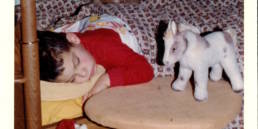
Danell Adams felt confident she had locked away temptation as she readied her ocean-view Laguna Beach home last year for an open house.
Knowing that thieves sometimes posed as potential home buyers, she locked her jewelry in a safe and hid her keepsakes and electronics. Adams’ mistake was she didn’t think cynically enough — and she’s a 33-year veteran of the city’s police force.
Sometime during the open house, three prescription medications — a painkiller, a muscle relaxant and a sleep aid — were taken from her master bathroom. Adams had left the vials beside the sink to remind herself to take the pills she needed after back surgery.
“It was a little thing you don’t think about,” said Adams, a supervising detective. “It was like, ‘How easy was that?’ Then it alarmed me. That was some pretty heavy-duty medication.”
Other home sellers also have discovered that public showings of their properties lightened their medicine cabinets.
Although prescription-drug thefts may not come to mind as owners prep their homes for an open house, they occur frequently enough that agents routinely advise clients to stash away pharmaceuticals along with heirloom brooches, iPods and Rolexes. Websites run by brokerages and government agencies across the nation post similar warnings.
When someone attending an open house or a yard sale lingers in the bathroom, they actually may be “pharming” — cadging pills for resale or their own addiction, according to Tom Riley, a spokesman for the White House Office of Drug Control Policy.
“It’s a much more common phenomenon than people realize,” Riley said. “We hear anecdotes about it all the time, and it’s probably underreported because people consider the content of their medicine cabinet private. Plus, they don’t want to seem stupid” for having left medications in easy reach.
Criminals’ favorite targets appear to be multimillion-dollar homes swarming with visitors during Sunday open houses, when owners are often away. No statistics are kept on the most commonly swiped prescriptions, but real estate agents and local police report that painkillers such as Vicodin and Oxycotin and tranquilizers have gone missing. One broker reported migraine medicine stolen from a Bel- Air client.
Crooks frequently work in pairs using a distract-and-conquer scheme, in which one asks the agent questions while the other hunts for loot. The ploy is a reason why many agents work in pairs. If a house is split-level, an agent stays on the ground floor to welcome attendees while the other goes upstairs, watching visitors for suspicious behavior.
“If we have 10, 20, 30 people in an open house, it’s hard to control them all the time,” said Vince Malta, president of the California Assn. of Realtors.
Coldwell Banker agent Mary Lu Tuthill once had a Brentwood client who discovered her Ritalin missing following an open house. In another incident, Tuthill’s partner observed a woman rummaging through a homeowner’s master-bathroom medicine cabinet. Before they kicked her out, the two agents persuaded the woman to empty her pockets. She had not stolen anything — yet.
Of course, thieves have snatched more than pills. A ring operating on the Westside a few years ago grabbed rings, watches and laptops.
Concerns about theft and personal safety are why Tuthill today only hosts open houses with off-duty police officers on the premises. Like many of her peers, she requires prospects to furnish identification, address, broker’s name and related information before entering. “We live in desperate times,” Tuthill said. “Some people are willing to take advantage.”
Visitors at public open houses sometimes hesitate when asked to give out contact information, Tuthill said, because they fear agents will use it to hound them with follow-ups.
“They don’t like to give out their phone number,” Tuthill added. “I say the owner just likes to know who comes in their house.”
Calculating how much security open houses require is tricky. Agents estimate that thefts occur less than 1% of the time, partly because veteran Realtors can sniff out fishy visitors. Still, nobody knows the true rate, because some sellers are reluctant to disclose sensitive medical issues to police that could later be made public in a crime report.
Stolen pharmaceuticals fuel a profitable trade. A $1 pill under subsidized healthcare can fetch multiple times that amount on the black market, according to Adams and other police. Riley, of the White House’s drug-control office, said stolen prescription drugs are the “one segment of the drug trade” that is still growing.
John Aaroe, president of Prudential California Reality, which represents properties from Santa Barbara to the Coachella Valley, said he’s noticed that trend reflected at open houses during the last five years.
“The most obvious problem we have is with prescription drugs being taken,” Aaroe said. “People are surprised. We all think our house could be burglarized or damaged. We don’t think our prescription drugs are of interest to anybody else.”
Agents and brokerages are typically not liable for stolen property.
The local Bonnie and Clyde of open-house thievery was a polished young couple who over the course of a year hit more than 50 upscale homes as far north as Beverly Hills and as far south as Laguna Niguel. They rolled up in a black Jaguar and chic garb to create the impression that they were serious buyers.
Los Angeles Police Det. Steve Bucher, who tracked the couple before arresting them in South Pasadena in September 2003, said the pair mainly took jewelry — including a $35,000 watch — but did take a few pill containers. Quick with a turnaround, the couple could rob an open house in the morning and have the best items in a pawnshop or jewelry store by the afternoon. If need be, they impersonated brokers and broke into jewelry boxes, stealing goods in excess of $200,000.
Dewey West and Kathy Engelhardt pleaded guilty to numerous counts of residential burglary, Bucher said. A Superior Court judge sentenced West to 16 years under California’s “three-strikes” law. He escaped from the Pitchess Detention Center in Castaic, but police soon re-apprehended him.
Engelhardt never appeared to begin her four-year sentence; there are outstanding warrants for her.
“Real estate agents were very aware of the ring,” Bucher added. “It got through their whole network.”
Adams, for her part, remains in disbelief that somebody took medicine from her home.
She said her Realtor followed up by alerting the agents representing prospective buyers who had been there that a crime had taken place.
“But there were so many people who came through,” Adams said. “It’s a lesson learned.”
copyright Los Angeles Times
Related Posts
Transit Commision Auditors Cast Eagle Eye On Tutor’s Costs
Los Angeles Business Journal Los Angeles County…
History Of Hollywood Museum Reads Like Horror Movie Script
Los Angeles Daily News It was an affair to remember, a…




